Ukraine’s Test From Within
When the new Ukrainian prime minister visits the White House this week, President Obama should offer continued support -- but also ask pointedly why several far-right ultra-nationalists have such prominent roles in Ukraine's new government.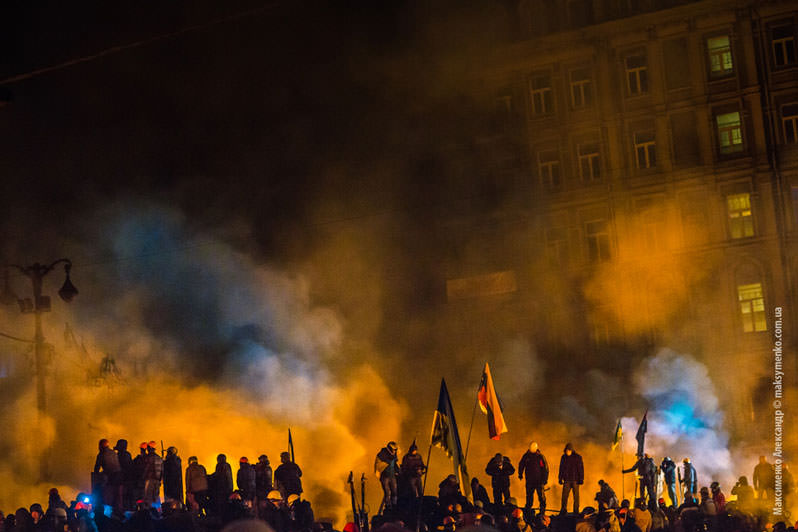 Euromaidan protesters rest and strengthen their barricades on Hrushevskoho Street after clashes with riot police in Kiev, Ukraine. Photo by snames / Shutterstock.com
Euromaidan protesters rest and strengthen their barricades on Hrushevskoho Street after clashes with riot police in Kiev, Ukraine. Photo by snames / Shutterstock.com
When the new Ukrainian prime minister visits the White House this week, President Obama should offer continued support — but also ask pointedly why several far-right ultra-nationalists have such prominent roles in Ukraine’s new government.
I don’t know of any reason to doubt Prime Minister Arseniy Yatsenyuk’s commitment to democracy and pluralism. The same cannot be said for some other members of the provisional regime that is trying to reverse Russia’s grab of the Crimean Peninsula.
Oleksandr Sych, one of three vice prime ministers, is a member of the controversial Svoboda party, whose leader charged that Ukraine was being controlled by a “Muscovite-Jewish mafia” before last month’s revolution. Members of Svoboda also run the agriculture and environment ministries. Last year, the World Jewish Congress called on the European Union to consider banning what it considered neo-Nazi parties, including Svoboda.
The head of the National Security and Defense Council, in charge of the armed forces, is Andriy Parubiy, who founded the Social-National Party of Ukraine, an openly neo-fascist precursor to Svoboda. Parubiy’s deputy is Dmytro Yarosh, the leader of Right Sector, a far-right paramilitary group that clashed violently with the security forces of deposed leader Viktor Yanukovych.
All of which is to say that the situation in Ukraine is not as simple as it might seem.
It’s not fair to say that the new government is dominated by the far right. But the front-and-center presence of these unsavory characters should be enough to warn policymakers in Washington that Ukraine’s new leaders will have to be pressed to respect the rights of all citizens, including supporters of the ousted regime.
I tend to agree with the assessment by former Defense Secretary Robert Gates, who told “Fox News Sunday,” “I do not believe that Crimea will slip out of Russia’s hand.” Russian troops essentially control the peninsula and, from all reports, have substantial popular support. Unless a planned referendum on retrocession to Russia produces a surprise result — and Russian President Vladimir Putin doesn’t like surprises — it is hard to see how the new Ukrainian government can wrest Crimea back.
The other Russian-speaking parts of eastern Ukraine are a different story — potentially. Putin would face much more determined international opposition if he were to send troops to capture more of the country — unless the new government gives him an excuse.
The far-right parties have long championed Ukrainian-only laws that ban the use of the Russian language in official business. They have ideas about rewriting history books and celebrating Ukrainian — as opposed to Russian or Jewish — ethnic heritage. Svoboda’s platform, for example, calls for Ukrainian passports to specify the bearer’s ethnicity.
Sorting all of this out will require the new government to reassure Russian-speakers in the east that they do not need protection from Moscow, as Putin claims. But Russian media are playing up an incident Saturday in which armed, masked assailants broke up a pro-Russia rally in the eastern city of Kharkov.
Was the incident perhaps a provocation, staged by Putin? Could be. But Ukraine’s Russian-speakers would be less likely to give credence to the notion that they are under threat of persecution if the new government did not include far-right leaders whose rhetoric has been ethnocentric and at times violent.
What does this mean for the Obama administration? Proceed with caution.
The president should pay no attention to the loudmouths who claim he somehow “lost” Crimea, presumably just as George W. Bush “lost” parts of Georgia when Russia invaded that country. No amount of rhetorical bluster — or, for that matter, U.S. defense spending — would have dissuaded Russia from occupying a strategic plot of land where it has had a major military presence for more than two centuries.
Yanukovych was a thief and a lout; Ukraine is better off with him gone. But Obama should insist that the provisional government organize new elections that are free and fair, and that prove to Russian-speakers that they, too, have a voice in the new Ukraine. This means making clear that anti-Semitism and ethnic chauvinism are unacceptable.
Obama should anticipate that if far-right figures begin to shape the policies of the new government, tensions between the eastern and western parts of the country will get worse, not better. Public opinion in cities such as Kharkov and Donetsk, where people are nervous but don’t want to become Russians again, may begin to shift Putin’s way.
The upheaval in Ukraine, I’m afraid, is anything but simple — and anything but over.
Eugene Robinson’s e-mail address is eugenerobinson(at)washpost.com.
© 2014, Washington Post Writers Group
Your support matters…Independent journalism is under threat and overshadowed by heavily funded mainstream media.
You can help level the playing field. Become a member.
Your tax-deductible contribution keeps us digging beneath the headlines to give you thought-provoking, investigative reporting and analysis that unearths what's really happening- without compromise.
Give today to support our courageous, independent journalists.

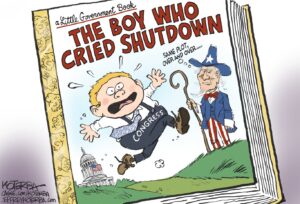
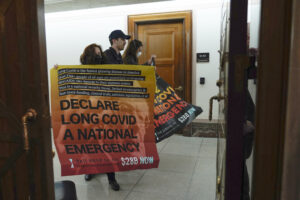
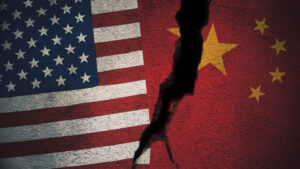
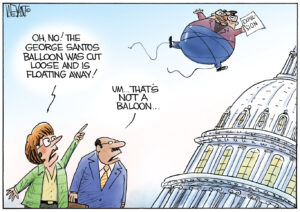
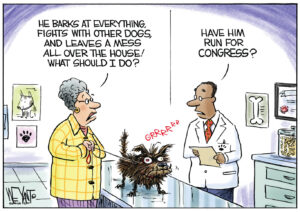
You need to be a supporter to comment.
There are currently no responses to this article.
Be the first to respond.